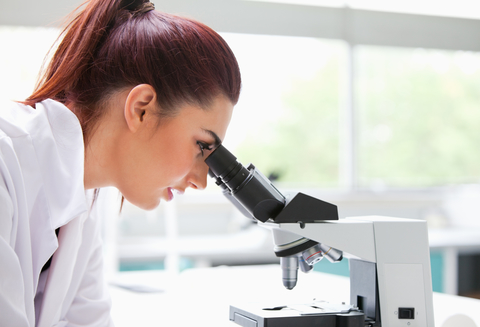Research on tuberculosis using human cells

Under the UK-India Education and Research Initiative (UKIERI), Dr Sovan Sarkar, a Fellow at the Institute of Cancer and Genomic Sciences in University of Birmingham, has been awarded the UKIERI DST Thematic Partnership Award with Dr Dhiraj Kumar at the International Centre for Genetic Engineering and Biotechnology (ICGEB) in New Delhi.
The University of Birmingham reports the three year grant will be funded by the British Council to Sovan Sarkar and by the Government of India Department of Science and Technology (DST) to Dhiraj Kumar.
The project entitled “Investigating the regulation and manipulation of autophagy, mitophagy and xenophagy upon Mycobacterium tuberculosis infection in human embryonic stem cell-derived macrophages” will be undertaken jointly at the University of Birmingham and ICGEB. Part of the research will be in collaboration with Dr Eva Frickel at the Francis Crick Institute. Key research team members include the PhD students Elena Seranova at the University of Birmingham and Surbhi Verma at ICGEB.
The UKIERI DST Award contributes to the University of Birmingham’s increasing scientific engagements with India under the umbrella of the University of Birmingham India Institute.
Sovan Sarkar’s lab, primarily involved in the autophagy and human stem cell work in this project, aims to develop a pipeline originating from basic biology to drug discovery and potentially translate the findings for biomedical applications.
Dhiraj Kumar’s lab at ICGEB works towards understanding the host-pathogen interactions during mycobacterium tuberculosis infection using high-throughput experimentation and integrative analytical approaches.
The UK and the India research teams recently met in Bhubaneshwar in India during December 2017 at the India–EMBO Symposia on Autophagy: Cellular mechanisms and significance in health and disease. Sovan Sarkar was a co-organiser of this conference and Dhiraj Kumar was an invited speaker.
Tuberculosis is a devastating infectious disease caused by mycobacterium tuberculosis (Mtb) resulting in 1.5 million annual deaths globally, posing a serious health concern in a number of low and middle income countries including India. Host innate defence mechanisms include removal of cellular Mtb through a biological process called autophagy, which is an intracellular degradation pathway for aggregation prone proteins, damaged organelles like mitochondria (mitophagy) and pathogens (xenophagy). Autophagy is essential for maintaining cellular homeostasis and is thus vital for human health.
This UKIERI DST funded research project will use cutting edge technologies involving human stem cells and genome engineering, with the overall objective to understand the role of autophagy during Mtb infection in relevant human cellular platforms. The findings will be translated into novel therapeutic interventions for tuberculosis and related infectious diseases where autophagy acts as a protective pathway. The initial research work has been submitted for publication and has been uploaded at bioRxiv, a preprint server for biology.








